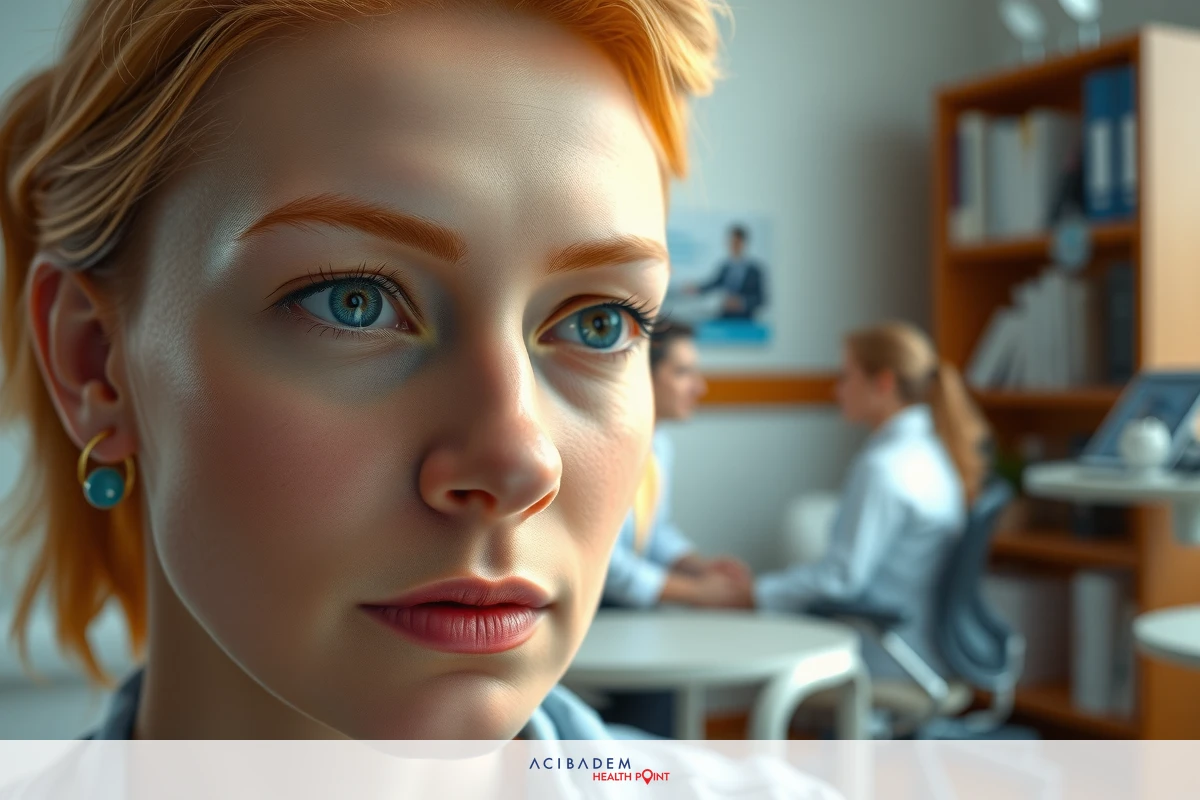Can Rhinoplasty Affect Vision?
Can Rhinoplasty Affect Vision? Rhinoplasty, the reshaping of one’s nose through surgical means, can indeed be a transformative experience. Yet amidst this transformative journey, concerns may arise about unforeseen implications – particularly those related to eyesight.
Although it is primarily an operation performed on the nasal structure, its proximity to the eye has raised questions around potential vision impairment post-surgery. Medically speaking, direct influence of rhinoplasty on vision isn’t common; most changes in sight are temporary and often result from swelling or bruising that subsides as recovery progresses.
Yet uncertainties persist and thus it becomes essential for individuals considering this surgery to engage in detailed discussions with their medical team. Understanding all aspects of any major health decision is vital for ensuring peace of mind and successful outcomes.
Can Rhinoplasty Affect Vision? A Comprehensive Overview of Rhinoplasty
Rhinoplasty, often referred to as “nose surgery,” is a popular cosmetic procedure designed to alter the shape or size of the nose. It’s seen in various forms worldwide, sometimes undertaken for purely aesthetic reasons and other times due to medical necessities such as respiratory issues or deformities. The complex nature of this surgical procedure lies within its intricate blend of artistry and precision science.
The primary focus during rhinoplasty is on altering nasal structures – including bone, cartilage and skin. This restructuring can lead to significant improvements not only in facial harmony but also overall self-esteem. However, it’s worth noting that while these are common goals among patients opting for rhinoplasty, each individual case presents unique challenges and results may vary.
Potential risks associated with rhinoplasty include reactions to anesthesia, infection post-surgery and sometimes minor complications like prolonged swelling or bruising around eyes leading some individuals question about potential vision impact after surgery. But it’s crucial to remember that these risks are generally rare instances rather than commonplace occurrences; most people undergoing rhinoplasty experience smooth recoveries without substantial implications on their vision.
Potential Impact on Eyesight
While the primary focus of rhinoplasty is the nose, it’s natural to question if this procedure could impact other facial features – particularly those as sensitive as our eyes. After all, the proximity between eyes and nose can raise questions about potential effects post-surgery on one’s vision. However, rest assured that in most cases any changes to vision following a rhinoplasty are temporary.
In the immediate aftermath of surgery, patients might experience blurred vision or dryness in their eyes due to anesthesia or swelling around eye area. These symptoms typically resolve within few days after operation without causing long-term issues with sight. In some rare instances though, more serious complications such as double vision have been reported but these tend to be exceptions rather than rule.
It should also be noted that while we’re discussing possible visual impacts postrhinoplasty, majority of patients report no negative effects on their eyesight following surgery. Instead they find themselves delighted at newfound confidence stemming from improved facial harmony and symmetry achieved via this cosmetic procedure. The key takeaway here is that although minor temporary alterations in vision may occur after surgical intervention like rhinoplasty they aren’t usually cause for concern; permanent impairment is extremely rare.
Consulting Your Surgeon

When considering rhinoplasty, one of the most crucial steps is open and transparent consultation with your surgeon. This involves discussing not only desired outcomes, but also potential risks or concerns – including any questions about vision impact. It’s through these conversations that patients gain a comprehensive understanding of the procedure, empowering them to make informed decisions about their health.
Surgeons are equipped with extensive knowledge and experience in this field; they can provide valuable insight into how each step of the process may influence different aspects of your well-being post-surgery. They will likely reassure you that significant complications affecting eyesight after nose surgery are rare instances rather than regular occurrences. However, it’s equally important for surgeons to acknowledge possible temporary visual disturbances due to swelling or bruising around eye area post-rhinoplasty.
In addition to addressing concerns related to vision, consulting your surgeon enables an exploration of viable alternatives if needed based on individual circumstances. An experienced medical professional understands that every patient is unique and requires a tailored approach; hence they would be able to guide you towards best course of action while taking into account various factors such as physical health status, personal aesthetic goals and realistic expectations from surgery outcome.
Frequently Asked Questions
Can rhinoplasty surgery cause permanent vision impairment?
Typically, no. Permanent vision changes after a rhinoplasty are extremely rare. Any temporary alterations in eyesight post-surgery usually resolve on their own as the healing process progresses.
What kind of temporary visual disturbances might I experience after a nose job?
Some patients report minor symptoms such as dryness or blurred vision immediately following the procedure. These symptoms are often linked to anesthesia or swelling around eye area and usually subside within few days without causing long- term issues.
Should I consult an ophthalmologist before undergoing a rhinoplasty if I have concerns about my eyesight?
While it's not typically necessary, if you have pre-existing conditions affecting your eyesight or specific concerns related to your vision, discussing these with both your surgeon and an ophthalmologist could provide additional peace of mind.
What steps can be taken to minimize impact on my eyes during the recovery phase post-rhinoplasty?
Your surgeon will generally provide detailed advice tailored to your specific case. However, some common suggestions include ample rest, keeping head elevated especially while sleeping and using cold compresses intermittently to reduce swelling around eye area.











